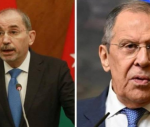You are here
Iraq’s sectarian nightmare
Jun 21,2014 - Last updated at Jun 21,2014
With the apparent conquest of Iraq’s northwestern provinces — and maybe more — by the militant Islamic State of Iraq and the Levant (ISIL), the country’s troubled history has opened a horrifying new chapter.
In a matter of just days, ISIL’s fighters overran Anbar, Nineveh and Salaheddin provinces — a victory that attests to the central government’s non-existent authority in Sunni-majority areas.
And, given ISIL’s jihadist ideology, there is limited scope for “Sunni outreach” — the supposed panacea for all that ails Iraq’s sectarian political culture.
ISIL is not a group that is receptive to dialogue. Its leadership adheres to the view, expressed in many corners of the Arab Sunni world, that Shiite Muslims are apostates and betrayers of Islam who rank among the worst of the worst (alongside Israel and the United States).
This means that the US needs both a military response to ISIL and a political response that extends beyond Iraq.
What is needed, above all, is a regional approach to the increasingly murderous Sunni-Shiite rivalry.
It is worth remembering that the original sin of the US-led occupation of Iraq 11 years ago was so-called “de-Baathification” — the purge of any and all people with ties to Saddam Hussein’s Baath Party.
That decision was taken in the year following the 2003 invasion, when Iraq was a wholly owned US subsidiary; Iraqi officials, whether Shiite or Sunni, had almost nothing to do with it.
It is often said that Iraq needs a Nelson Mandela; the same could be said of US policy makers back then.
In the ideologically charged US policy circles of the time, de-Baathification was understood to be a decisive move to extirpate a heinous ideology. It was likened to the de-Nazification of Germany following World War II.
But de-Baathification ended up targeting anyone who ever had ties to Baathism, something far beyond what the occupying armies attempted in Germany.
Given the vast patronage system that Saddam had created, such people included even elementary school principals. And though some Shiites, especially secularists, joined the Baath Party to survive in Saddam’s system, Baathism was broadly and correctly understood to be a kind of secular fig leaf for Sunni minority rule.
Thus, the overall effect of this de-Baathification programme was to marginalise the Sunnis. And the Sunni response to de-Baathification became de facto support for Islamists.
That is where we are today. By and large, Iraqi political parties are sectarian organisations. Shiites vote for Shiite candidates and Sunnis for Sunnis.
There are exceptions, of course. Following April’s general elections, not every Shiite is delighted by the prospect of another term for Prime Minister Nouri Al Maliki; but they were not prepared to vote for Sunni parties to prevent it.
US President Barack Obama is correct in saying that a political complement to any military action is needed.
A good place to start probably would be a pledge by Maliki not to lead the government for what would be his third term.
Maliki has become the most polarising figure in Iraqi politics, and it is difficult to imagine the country making any progress under his leadership.
But there needs to be a far more concerted effort to persuade Iraq’s Arab neighbours to accept a Shiite-governed Iraq.
Among Iraq’s Arab population (that is, leaving aside the Kurds, who make up roughly 20 per cent of the population), Shiites outnumber Sunni by three to one.
In a country where political identity is — at least for the time being — tied to sectarian identity, majority rule thus means Shiite rule.
And yet, the rest of the Sunni Arab world has had a difficult time absorbing this demographic fact.
Many countries — for example, Saudi Arabia — have restive Shiite minorities, and one, Bahrain, has a restive Shiite majority. But all Sunnis should be concerned about the kind of extremism that ISIL represents.
Though the bombing and assassination campaign waged by Sunni Islamists in Iraq has been directed mainly against Shiites, many such attacks have also targeted Sunnis suspected of supporting the government.
And much of the weaponry and other aid that Saudi Arabia and the Gulf states have supplied to support the Sunni uprising in Syria is now in the hands of extremists.
It turns out that arming Syria’s moderate rebels is easier said than done.
What is happening today in Iraq is part of a broader pattern of sectarian violence across the region.
Whether triggered by the US-led invasion of Iraq 11 years ago or by the often-misunderstood Arab Spring, sectarianism is alive and well, and in the case of ISIL, it is accompanied by the kind of terrorism that the US has confronted so firmly since September 11, 2001.
America and the West need a policy that addresses the sectarian struggle head-on — not just in Iraq but throughout the region.
The writer, former US assistant secretary of state for East Asia, is dean of the Korbel School of International Studies, University of Denver. ©Project Syndicate, 2014. www.project-syndicate.org










